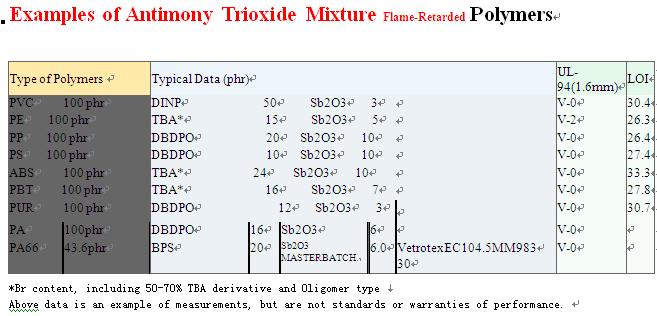Monday, December 11, 2006
Japan's spot indium, antimony trade slows after China rebate cut
Spot indium and antimony trade in Japan has been slow this week after the Chinese government's announcement to cut tax rebates on these metals effective September 15, Japanese trade sources said.
Japanese traders said spot offers for the rare metals stopped coming in this week after the Chinese government's announcement on September 15 to cancel or reduce tax rebates on some metal exports. Before September 15, China's rare metal exporters had 13% of their indium export costs and 5% of the antimony export costs refunded from the government. Effective September 15, for exports signed on and after the date, the tax rebates would be eliminated and Chinese metal exporters would no longer enjoy the refund.
One Japanese trader said he has heard views that the Chinese tax authority would accept applications for tax rebates until the end of this year as long as the contract was signed on September 14 or before. "But the authority may be strict about submission dates, as Friday's announcement specifically said document 'forgeries' are not acceptable." Another trader said he has heard from his counterparts in China that the Chinese tax authority had refused to accept documents that were submitted on Friday for exports dated earlier.
Japanese trade sources said unanimously that they have received no new spot offers for indium or antimony from China this week, and trading activities had slowed.
Regarding the price trends in the coming weeks, indium metal traders in Tokyo said they do not expect to see the metal prices jump by 13% immediately. One trader said a 13% tax rebate cut translates as $70 rise in export prices, but since the spot demand has softened on the back of high material stock level in China, sellers would not add on the $70 cost rise straight away.
Chinese-origin 99.99% purity indium metal was quoted in a broad range of $550-650/kg CIF Japan in the week ended September 15. In early September, a deal involving more than 1 mt of the metal was concluded at levels below $600/kg CIF Japan.
A source close to a Japanese indium metal producer agreed, adding that the range of Chinese offer prices that has widened as much as $100/kg suggested that the sellers were setting their offers based on their own financial and stocks situations, rather than the market fundamentals.
"Some who would want to sell at prices below their break even points, would not transfer the 13% rise in export costs until later...some may transfer costs earlier," the source said.
Spot antimony metal supply is relatively tighter compared to indium, sources said. The antimony market sentiment was mixed, with one Japanese trader seeing "a slow transfer of rebate costs on softer demand," while one consumer in the flame retardant material sector expecting tighter spot supply followed by a price rise. The trader said he heard antimony metal being quoted at $5,400/mt CIF Japan on the week ended September 15.
Japanese traders said spot offers for the rare metals stopped coming in this week after the Chinese government's announcement on September 15 to cancel or reduce tax rebates on some metal exports. Before September 15, China's rare metal exporters had 13% of their indium export costs and 5% of the antimony export costs refunded from the government. Effective September 15, for exports signed on and after the date, the tax rebates would be eliminated and Chinese metal exporters would no longer enjoy the refund.
One Japanese trader said he has heard views that the Chinese tax authority would accept applications for tax rebates until the end of this year as long as the contract was signed on September 14 or before. "But the authority may be strict about submission dates, as Friday's announcement specifically said document 'forgeries' are not acceptable." Another trader said he has heard from his counterparts in China that the Chinese tax authority had refused to accept documents that were submitted on Friday for exports dated earlier.
Japanese trade sources said unanimously that they have received no new spot offers for indium or antimony from China this week, and trading activities had slowed.
Regarding the price trends in the coming weeks, indium metal traders in Tokyo said they do not expect to see the metal prices jump by 13% immediately. One trader said a 13% tax rebate cut translates as $70 rise in export prices, but since the spot demand has softened on the back of high material stock level in China, sellers would not add on the $70 cost rise straight away.
Chinese-origin 99.99% purity indium metal was quoted in a broad range of $550-650/kg CIF Japan in the week ended September 15. In early September, a deal involving more than 1 mt of the metal was concluded at levels below $600/kg CIF Japan.
A source close to a Japanese indium metal producer agreed, adding that the range of Chinese offer prices that has widened as much as $100/kg suggested that the sellers were setting their offers based on their own financial and stocks situations, rather than the market fundamentals.
"Some who would want to sell at prices below their break even points, would not transfer the 13% rise in export costs until later...some may transfer costs earlier," the source said.
Spot antimony metal supply is relatively tighter compared to indium, sources said. The antimony market sentiment was mixed, with one Japanese trader seeing "a slow transfer of rebate costs on softer demand," while one consumer in the flame retardant material sector expecting tighter spot supply followed by a price rise. The trader said he heard antimony metal being quoted at $5,400/mt CIF Japan on the week ended September 15.
Subscribe to:
Post Comments (Atom)
Examples of Antimony Trioxide Mixture Flame-Retarded Polymers








0 comment:
Post a Comment